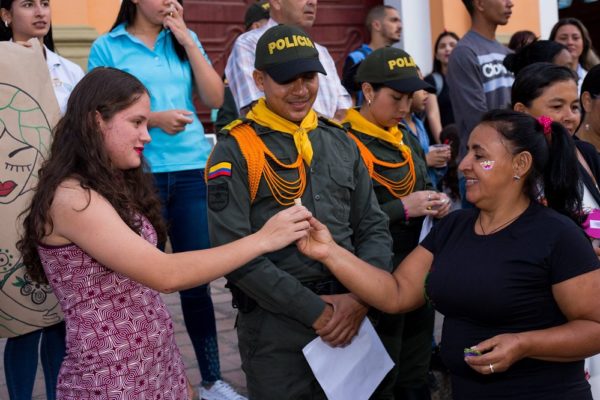Most social conflicts in Colombia become violent due to the lack of a State response to social demands in territories that are highly affected by armed conflict, the presence of organized criminal groups, illicit economies and natural resource disputes. The National Police has the responsibility of preserving security, peaceful coexistence, and restricting violence driven by social conflicts. However, there is still an inadequacy of non-violent methods to prevent and avoid the escalation of the violence that emanates from social conflicts.
In 2018, Interpeace and Alianza para la Paz, launched the “Conflict Transformation and Territorial Peace” programme, to help build capacities in the national police to prevent and manage violence originating from social conflicts in 5 municipalities. Through participatory research processes, the programme has developed a diagnostic document and conditions for dialogue in the selected regions. Moreover, the initiative has updated procedures, norms, protocols and programmatic training contents related to social conflicts from a human rights and peacebuilding perspective. These included: analyzing the programmatic contents of all schools, updating the selection of relevant content and implementing specialized training for police officers on conflict transformation and territorial peace.


